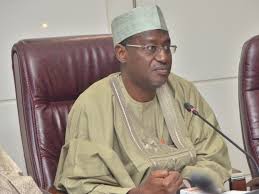The Federal Ministry of Housing and Urban Development is seeking partnership opportunities with the Kuwait Fund for Arab Economic Development (KFAED) to boost infrastructure projects that will support affordable housing and sustainable urban growth in Nigeria.
In a statement signed by the Ministry’s Director of Press and Public Relations, Badamasi Haiba, it was disclosed that the Minister of Housing and Urban Development, Ahmed Dangiwa, met with a delegation from KFAED, led by Director-General Dr. Wahad Al-Bahar. During the meeting, Dangiwa outlined several strategic initiatives under President Bola Tinubu’s administration that require both financial and technical collaboration.
Among the priority projects is the establishment of building material manufacturing hubs across the six geopolitical zones. Each hub will cover between 200 and 300 hectares and will be equipped with essential infrastructure such as roads, drainage, electricity, and water. These hubs will accommodate factories producing roofing sheets, doors, windows, ceramic tiles, and other construction materials, aimed at reducing costs and creating jobs.
Dangiwa also presented the Centenary City project, a 1,200-hectare mixed-use development along Abuja Airport Road, requiring infrastructure investment to attract commercial, residential, tourism, and industrial investors. He highlighted the Ministry’s slum upgrade programme, which has already completed over 120 out of 150 targeted projects in rural and semi-urban areas, providing roads, sanitation, electricity, schools, and hospitals.
The Minister further requested technical support from KFAED in updating feasibility studies for key projects, including Centenary City, and drew attention to the Renewed Hope Social Housing Programme, which aims to build 100 housing units in each of Nigeria’s 774 local government areas. This scheme targets low-income earners and displaced persons, offering flexible payment models and government subsidies.
In response, Dr. Al-Bahar expressed KFAED’s readiness to explore collaborative opportunities, especially in infrastructure and social development. While noting the Fund’s policy against directly financing housing projects, he affirmed its willingness to fund related infrastructure in transport, education, and agriculture. He revealed that KFAED recently signed its first Nigerian agreement with the Kaduna State Government for the “Reaching Out-of-School Children Programme” and offers soft loans with favourable terms, including 20–25 year maturities and low interest rates.
